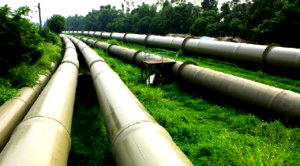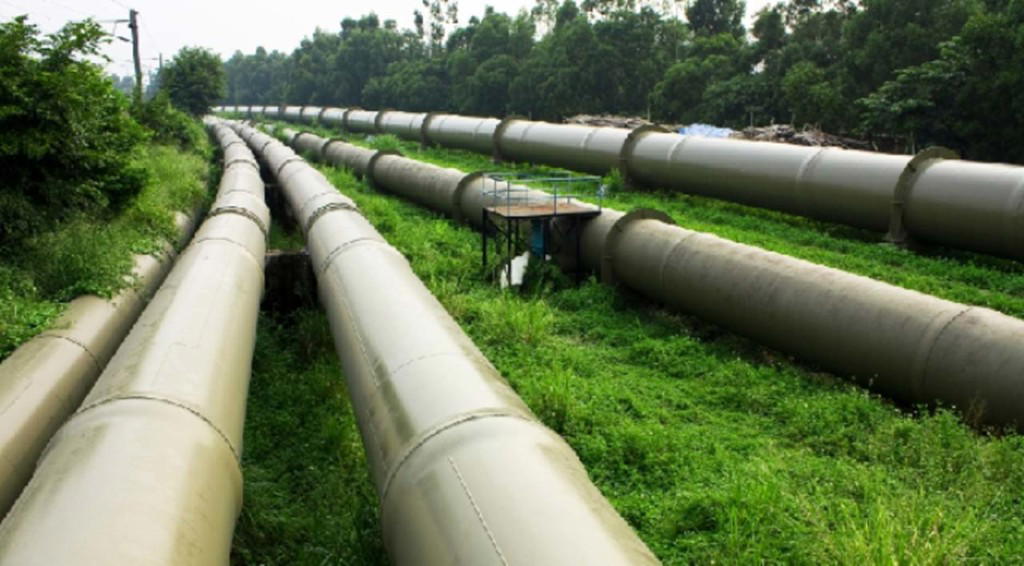
Despite lack of activities at the nation’s four refineries, pipeline vandalism continued across the country with over 151 pipeline points in the first quarter of 2021.
This upward trend reflects a surge of 26.5 per cent when compared to 111 pipeline points recorded in the corresponding period of 2020.gathered that within the period under review, March 2021 witnessed the highest report of vandalism with 70 pipeline points, while the least was recorded in March 2020 with 19 pipeline points.
A breakdown of the incidents shows that in the first quarter of 2020, only Mosimi recorded about 73 per cent of vandal points, followed by Kaduna at 16.3 per cent and Port Harcourt, 10.6 per cent.
Mosimi also tops the list of areas most affected by pipeline vandals in the first quarter of 2021, with 45 per cent, although this was a reduction when compared to the corresponding period in the previous year.
Port Harcourt and Kaduna followed with 40.3 per cent, and 15 per cent respectively.
Meanwhile, the Nigerian National Petroleum Corporation, NNPC, in its Monthly Financial and Operation Report, MFOR, for May 2021, stated that “Products theft and vandalism have continued to destroy value and put NNPC at a disadvantaged competitive position.
“A total of 545 vandalised points have been recorded between May 2020 and May 2021. The NNPC, in collaboration with the local communities and other stakeholders, continuously strove to reduce and eventually eliminate this menace.”
The corporation in its full-year report for 2020 showed that the country lost N33.5 billion in pipeline repairs and management costs for pipe breaks.
The report also revealed that in the same period under review, Nigeria recorded 441 pipeline vandalism across NNPC’s pipeline network.
Within the period, pipeline networks in the Mosimi area accounted for more than half of the total vandalised points.
Pipelines in Kaduna and Port Harcourt areas accounted for the remaining.
However, the Federal Government through the Ministry of Communications and Digital Economy has advocated the use of artificial intelligence in the protection of critical infrastructure across the country.
According to the Minister of Communications and Digital Economy, Dr Isa Ali Pantami: “There is need for more awareness, research and development. This is another dimension that I feel stakeholders should look into.
“How we can come together to have a multi-sectoral approach in which we all have a role to play to ensure that we protect our critical infrastructure by deploying new technological gadgets that will make our work easier, that we will be able to use remote surveillance to ensure that our infrastructure is safe.”
The Nigerian Navy Ship, NNS, BEECROFT, Apapa, Lagos, arrested no fewer than 16 suspected pipeline vandals at the Abagbo segment of the NNPC pipelines.
The Commander, NNS BEECROFT, Commodore Bashir Mohammed, in a statement, said that the arrest was made by the ship’s Task Force at Atlas Cove after a credible intelligence report.
He said the suspects were arrested with 73 kegs of 50 litres and 18 kegs of 25 litres, each filled with products suspected to be Premium Motor Spirit, PMS and two fibre boats with 175 HP each.
“Some were also arrested during a routine harbour patrol at the creek around the Snake Island,” he said.
According to him, the arrest will send a message to the criminals of the Nigerian Navy’s resolve of zero-tolerance to pipeline vandalism and illegal bunkering.
“NNS BEECROFT will not relent in executing the mandate of the Chief of Naval Staff, CNS, Vice-Adm. Awwal Gambo, which is geared towards eliminating economic sabotage thereby boosting national prosperity,” he said.
Mohammed said that the suspects have been handed over to the Nigeria Security and Civil Defence Corps, NSCDC for prosecution.
The panel moderator, Arumna Oteh, a former Vice President of the World Bank, and Director-General of the Securities and Exchange Commission, SEC, and a non-executive director at Seplat, said energy transition is a challenge for everyone and enjoined all to key into Seplat’s drive for clean energy.
She said there are global funding means including a N40trn energy access fund globally for countries driving climate change to leverage on.
Also speaking at the panel, the Executive Secretary of Nigerian Content Development Management Board, NCDMB, Engr. Simbi Wabote, said attaining zero carbon emissions by 2050 requires capital investment, commitment, and capacity building.
However, to attain this in 30 years, Wabote said it would mean that 90 per cent of Nigeria’s electricity would have to come from renewable energy sources.
He noted that for oil to dominate coal for power generation, it took about 160 years in the past, adding that to attain a shift from oil to renewables in the next 30 years is a huge task.
Investors are also buying into the prospects of the company as evidenced in the continued increase in the shares of the company with about 80 per cent positive return this year and this could rise as Nigeria’s transition priorities present significant opportunities for Seplat Energy to leverage.
These prospects range from the development of gas-to-power initiatives, development of LPG markets to alleviate the use of biomass, and development of renewable energy to serve large areas of the country not currently served by the national grid.


Comments
Post a Comment